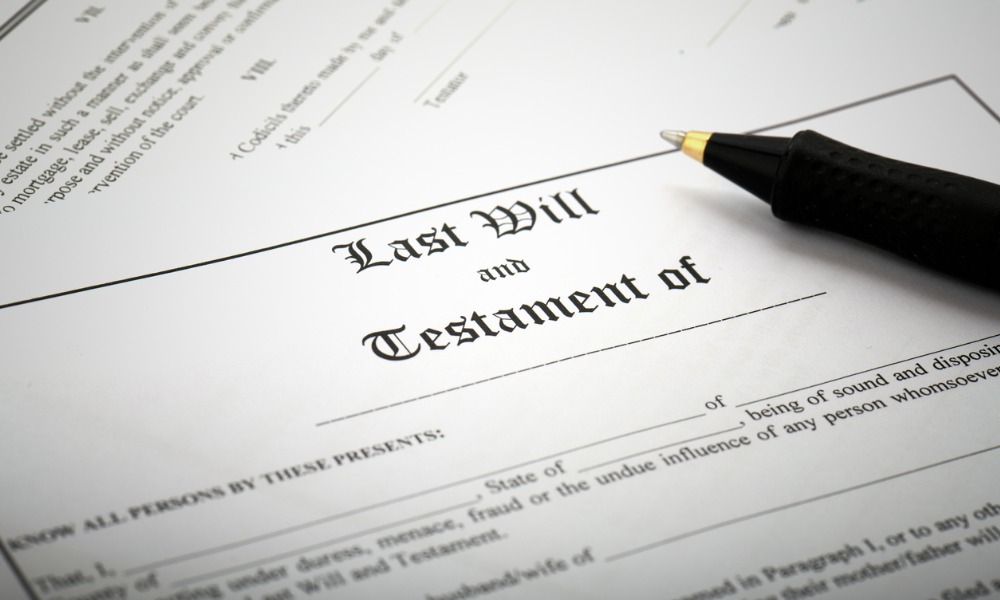
Learn more about the laws on wills in Ontario: how to make a will, how estate lawyers can help testators, and what happens when a person dies without a will

Whether you have various properties or not, having a will and doing estate planning is important. For this, the laws on wills in Ontario are instructive as to its validity. These laws also prevail when a person dies without a will.
For the lawyers reading our site, this piece should serve as an excellent explainer for your clients with these types of questions. Pass it along to them to get them started down the path.
A will is a legal document made by the testator (person making the will), which shall devise or dispose of properties after death.
There are two kinds of wills in Ontario:
There are also other forms of wills:
Aside from what is stated under common law, the provincial Succession Law Reform Act (SLRA) outlines the requirements for wills in Ontario to be valid. Its requirements shall also depend on whether the will is a holographic will or a formal will.
Common requirements for both holographic and formal wills in Ontario are:
The following are the separate requirements for the validity of holographic and formal wills in Ontario:
Holographic Will:
Formal Will:
For an overview on wills and other matters, here’s a primer to help you with estate planning.
Probate is required in Ontario only when a person is asking the court for:
Watch this video to know more about probate and its process:
If you’re looking for lawyers or law firms to help answer your questions regarding wills in Ontario, head over to our Special Report on Best Law Firms for Wills, Trusts, and Estates.
While a lawyer is not necessary for wills in Ontario to be valid, hiring a lawyer in drafting a will provides many advantages:
Estate lawyers can guide testators to clearly put in their wills what their wishes are, without violating any applicable laws of Ontario regarding wills and estates.
This is relevant, since the goal is to make the will effective – in substance and in the form used – especially when it’s being probated.
It’s highly recommended that a testator hire a lawyer especially when the estate is complicated. This is especially helpful, compared to when the testator only uses an online will service, which cannot address complex estate issues.
Although the payment of taxes cannot be avoided (this would result in tax evasion), estate lawyers could help testators minimize their taxes. This will fully maximize their properties to be bequeathed after dying.
Taxes as to the testator’s properties outside Canada may also apply. For this, lawyers can help testators prevent double taxation on their properties.
One of the problems with a holographic will is that its location may have been kept secret by the testator. When the time comes that it’s needed, it may not be found anymore.
Lawyers can be entrusted with the safety of the testator’s completed will. This will ensure that the testator’s family can locate the will when the testator dies.
The costs of making a will in Ontario usually range between C$500 to C$1,000. However, the specific or actual cost will depend on the complications of the testator’s properties and their beneficiaries.
Law firms for wills, trusts, and estates will consider these factors in determining the costs:
One of the disadvantages of not having a will is that a deceased’s properties will be distributed according to law.
While wills in Ontario are governed by the SLRA, this law will also prevail when a person dies intestate or without a will.
Intestate succession refers to the distribution or division of a person’s properties if they died without a will.
Depending on the remaining relatives of the deceased, below is a general order of succession as provided by in the SLRA:
Know that the “spouse” here does not include a common-law spouse. In this situation, it’s better that the spouses make a will or do an estate planning; otherwise, intestate succession will apply.
Have you given some thought to preparing a will? If you need some guidance, read and bookmark our Trusts and Estates section for news and insights on wills, estate planning, and succession planning.